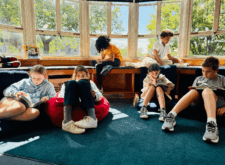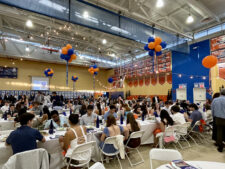The Fieldston Lower community explored the importance of voting this fall in their search for a new eagle species mascot to sponsor. After applying aspects of each grade’s curriculum to the study of voting systems and democracy, students gathered for a school-wide assembly demonstrating the power of a vote.
“We wanted our students to have a more informed and meaningful understanding of elections, and this project felt like a developmentally appropriate and dynamic way to provide such a learning experience,” says Assistant Principal of Academic Life Shawn Chisty. “Teaching about civic engagement and ethical decision-making was the central purpose of this assembly.”
Each grade contributed to a portion of the assembly held before the final vote, where students chose between a harpy eagle, a bald eagle, and a golden eagle. The youngest students in Pre-K and Kindergarten had read-alouds about voting, making choices, and participation, paralleling their lessons on decision-making. In a nod to their beloved year-long bird study, 1st Graders researched facts about each candidate to flesh out their campaign.
“Our 2nd Graders ran campaign headquarters, learning how to represent information accurately and engagingly, and our 3rd Graders ran the registration process, which taught them about gathering data from many constituents,” Chisty shares. “Our 4th Graders’ fall math curriculum revolves around computational fluency with large numbers; asking them to be in charge of tabulation was an excellent way to extend their skill set. Finally, as leaders of Fieldston Lower, it only felt right to ask our 5th Graders to run our election.”
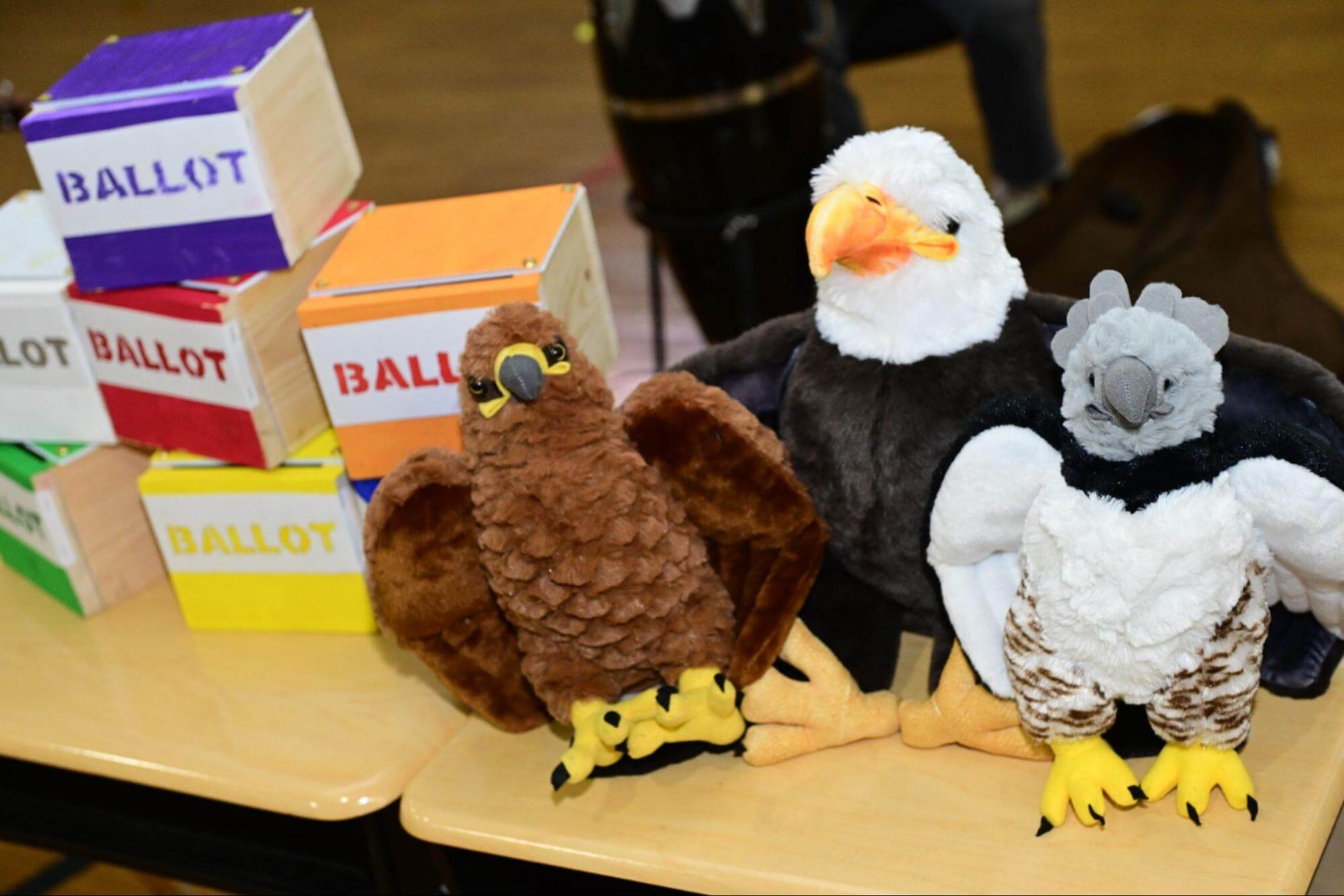
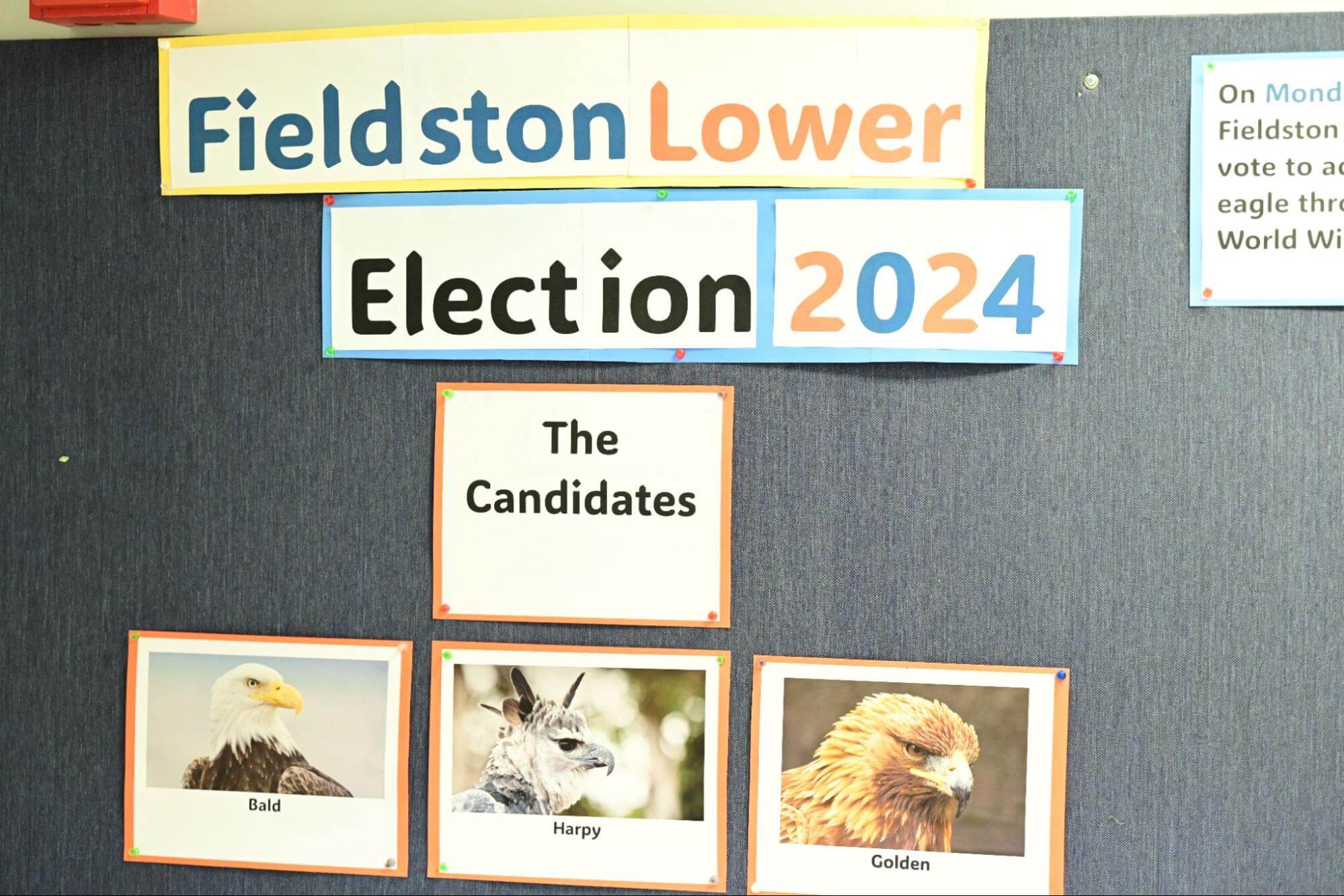
The 5th Grade created voting laws to share at assembly, including “If you need help, you get help,” “Positive messages only,” and “Respect the outcome.” Student-led assemblies like this are a staple of ECFS student life and reflect our core tenet that learning should empower the student. “5th Grade also ran each polling site, organized a pre-election school-wide poll, and announced the winner,” Chisty says. “We wanted each child in the school to feel connected to the larger project and feel that they each had a hand in making it happen.”
Chisty also led lessons with the 5th Grade examining decision-making at school, home, and the greater world. During a lesson on influence, students anonymously ranked factors of family, media, personal values, and community in the order they felt most influenced the decisions they made on a daily basis.
We wanted our students to have a more informed and meaningful understanding of elections, and this project felt like a developmentally appropriate and dynamic way to provide such a learning experience.
“Democracy requires the coexistence of a diversity of ideas and points of view,” he says. “It also requires compromise and individuals sometimes put their immediate needs aside to prioritize the collective good. These lessons are paramount when learning to live in an ethical, democratic society.”
Students rated personal values and family as the most influential and media as the least, but Chisty noted Chloe M. ’32’s prescient observation: “I think we aren’t being honest about how much the media influences our decisions. We think it doesn’t, but it actually does.”
The election assembly began with students learning to say “Vote” in American Sign Language, followed by playing “VOTE: An Original Song,” created by 1st Grade Associate Teacher Matt Cleary and the 4th Grade. 5th Graders Neena D. ’32 and Sadie H. ’32 then read the poem “I Vote” by Amy Ludwig VanDerwater.
After a singalong to The Amidons’ “Vote For Me”, led by Music Teachers Bárbara Martinez and Angela Dixon, several 5th Graders shared election rules while 3rd Graders Clyde C. ’34 and Lulu T. ’34 explained the voter registration process. Before the results of the pre-election poll were shared, 5th Graders Lila K. ’32 and Wesley B. ’32 showed the community what their ballot of eagle candidates looked like.
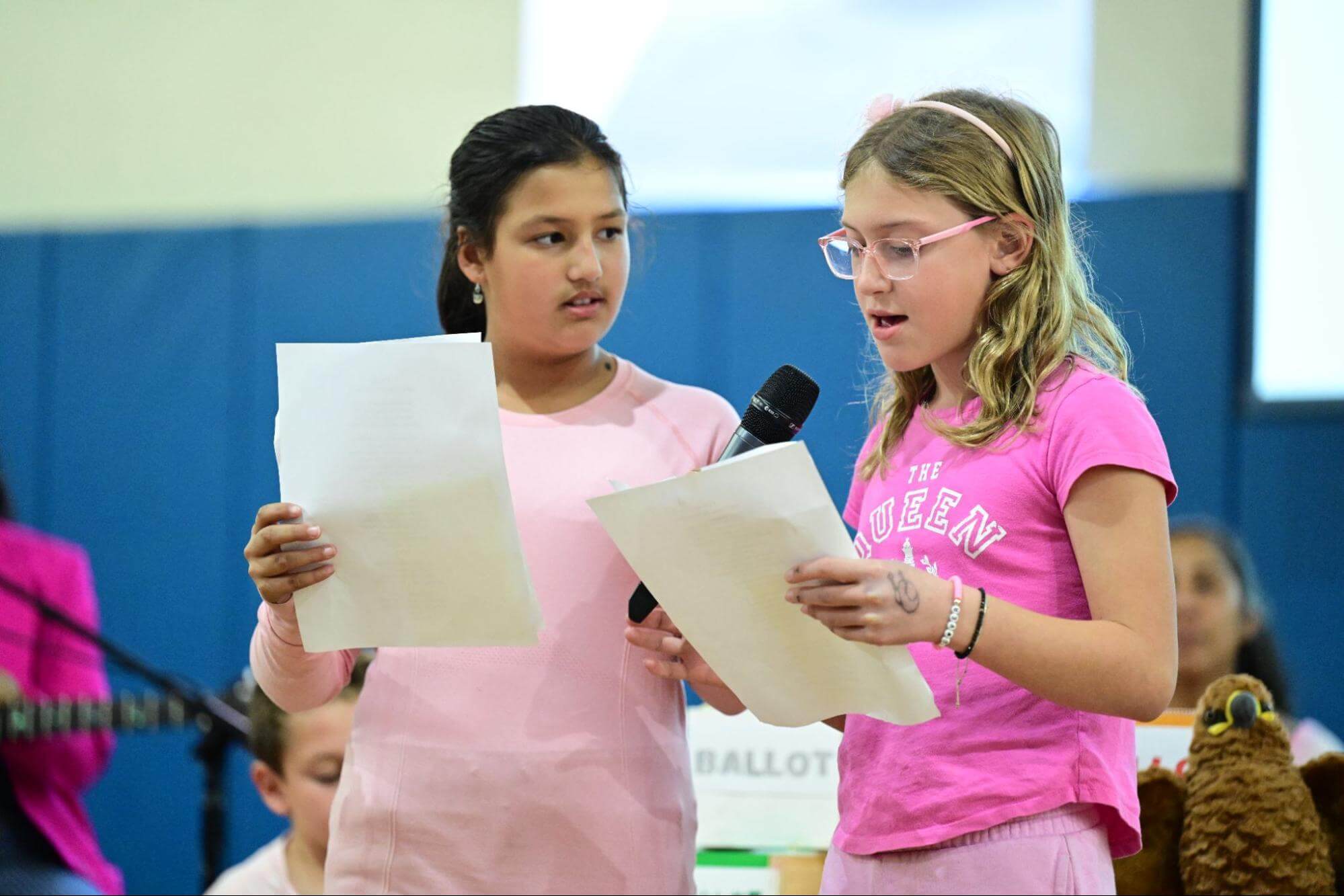
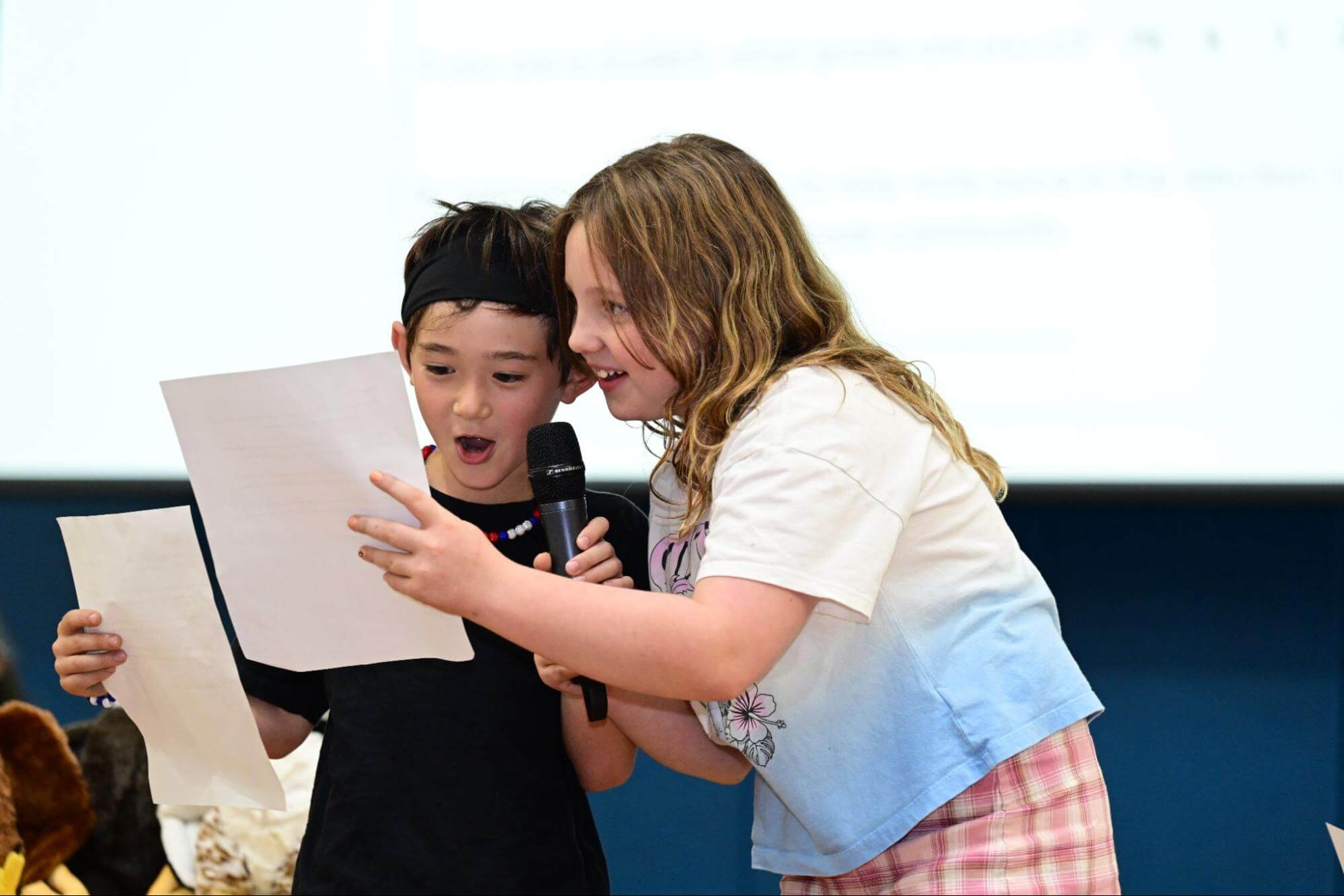
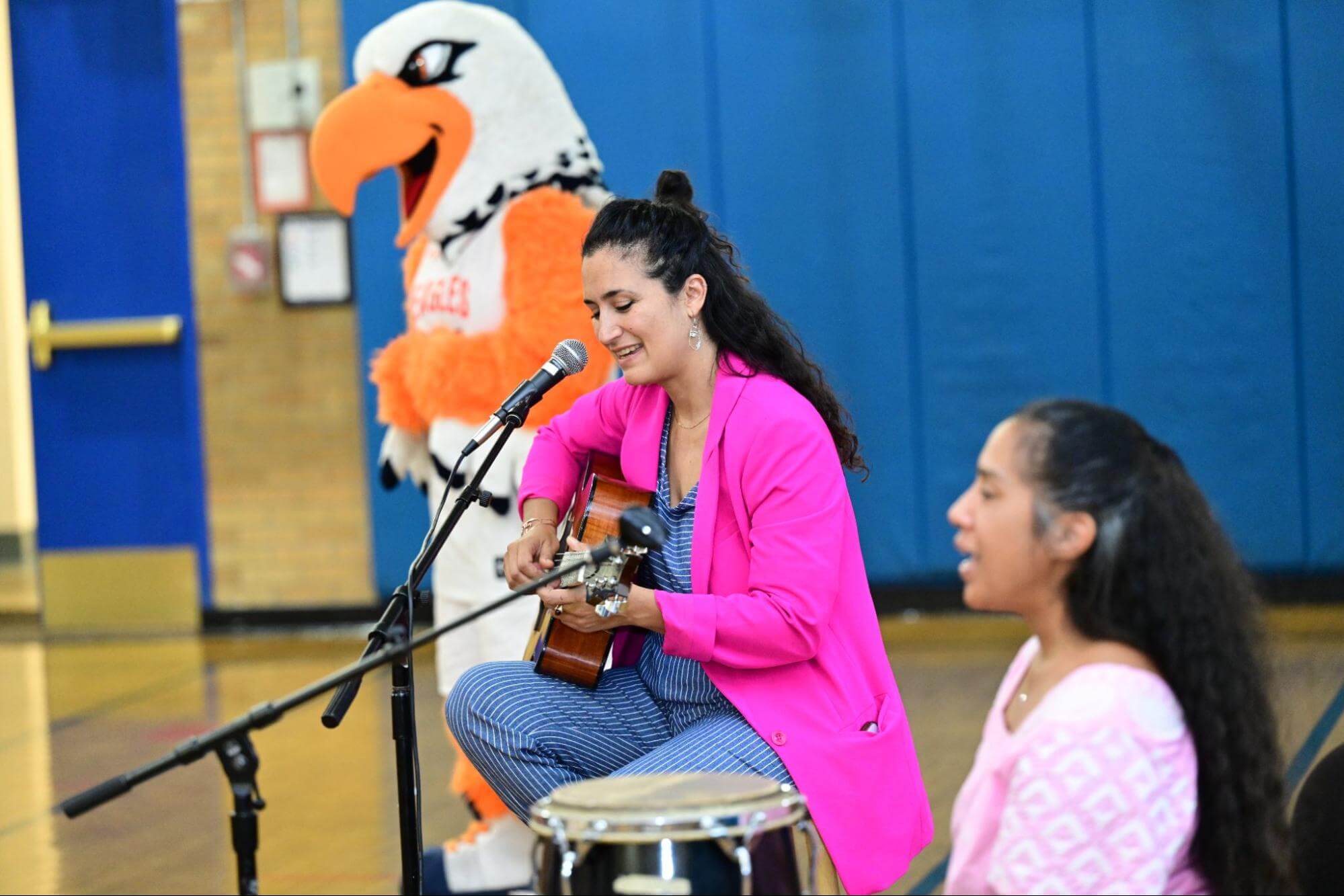
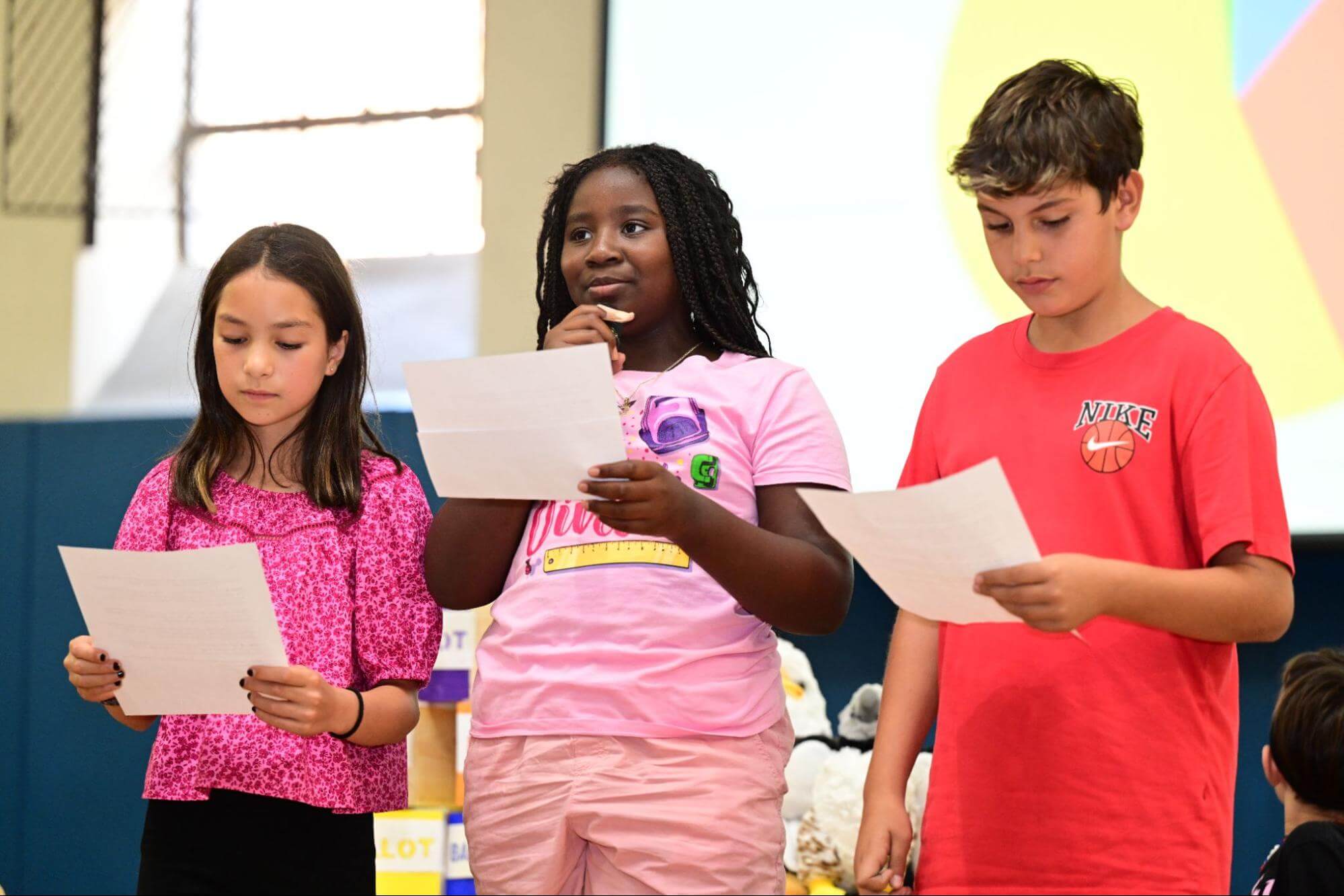
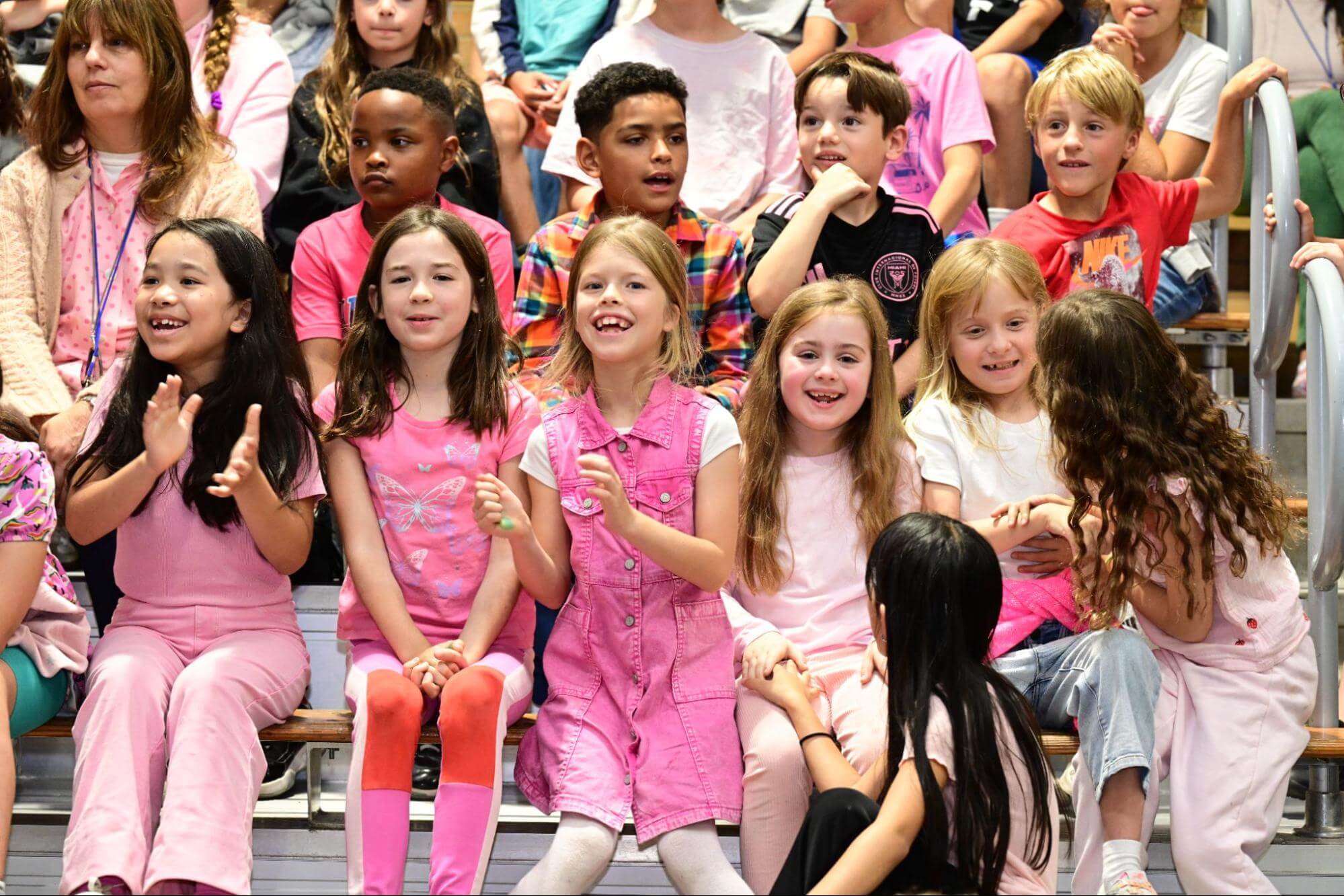
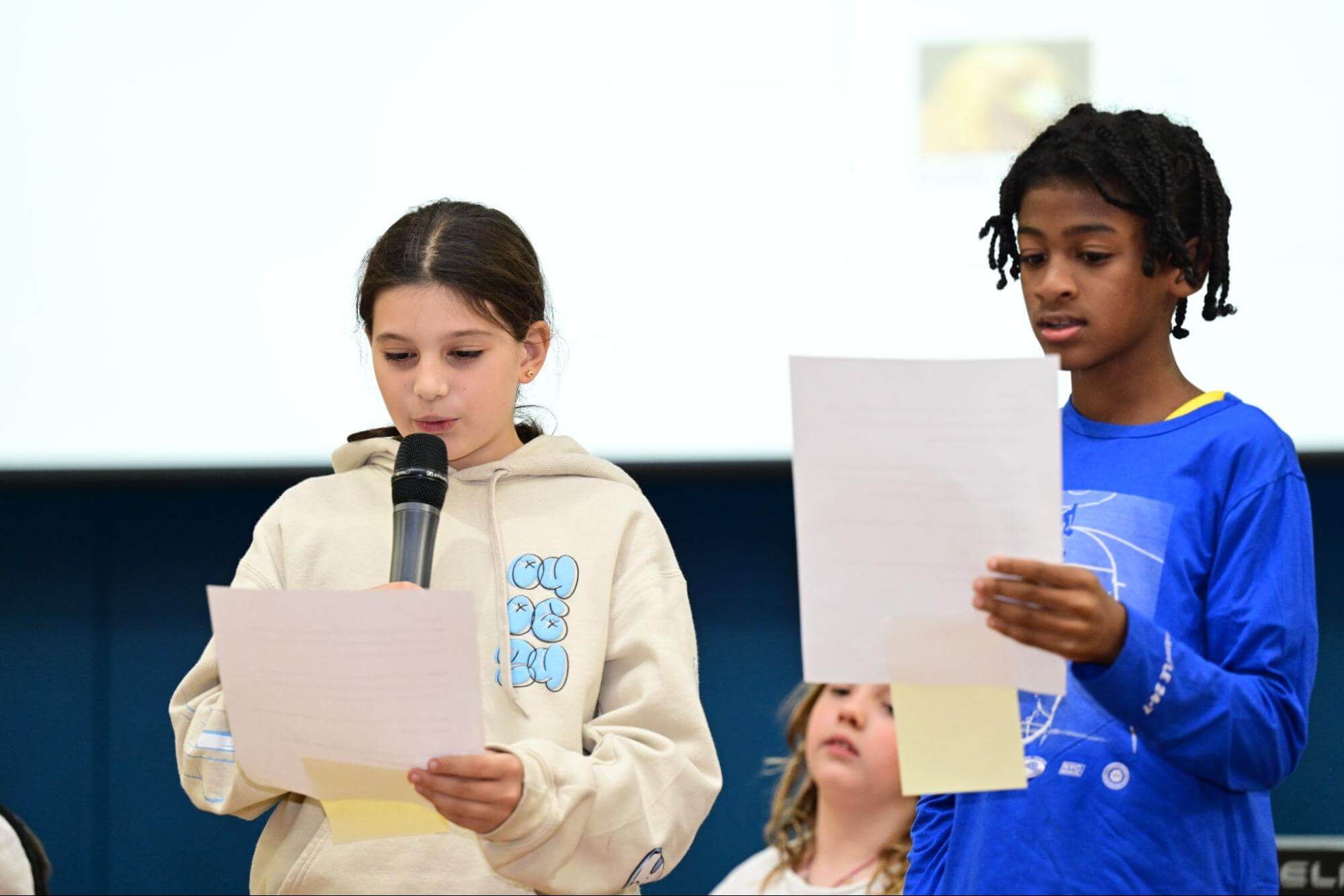
On Fieldston Lower’s Election Day, students and faculty voted via ballot boxes built by 2nd Graders in Woodshop and sported “I Voted” stickers, also designed by the 2nd Grade. After 5th Graders delivered ballot boxes to the school office, 4th Graders served as tabulators, keeping track of each candidate’s votes and producing bar and pie graphs displaying the final data. Ultimately, the harpy eagle was victorious as the bird Fieldston Lower will sponsor through the World Wildlife Fund.
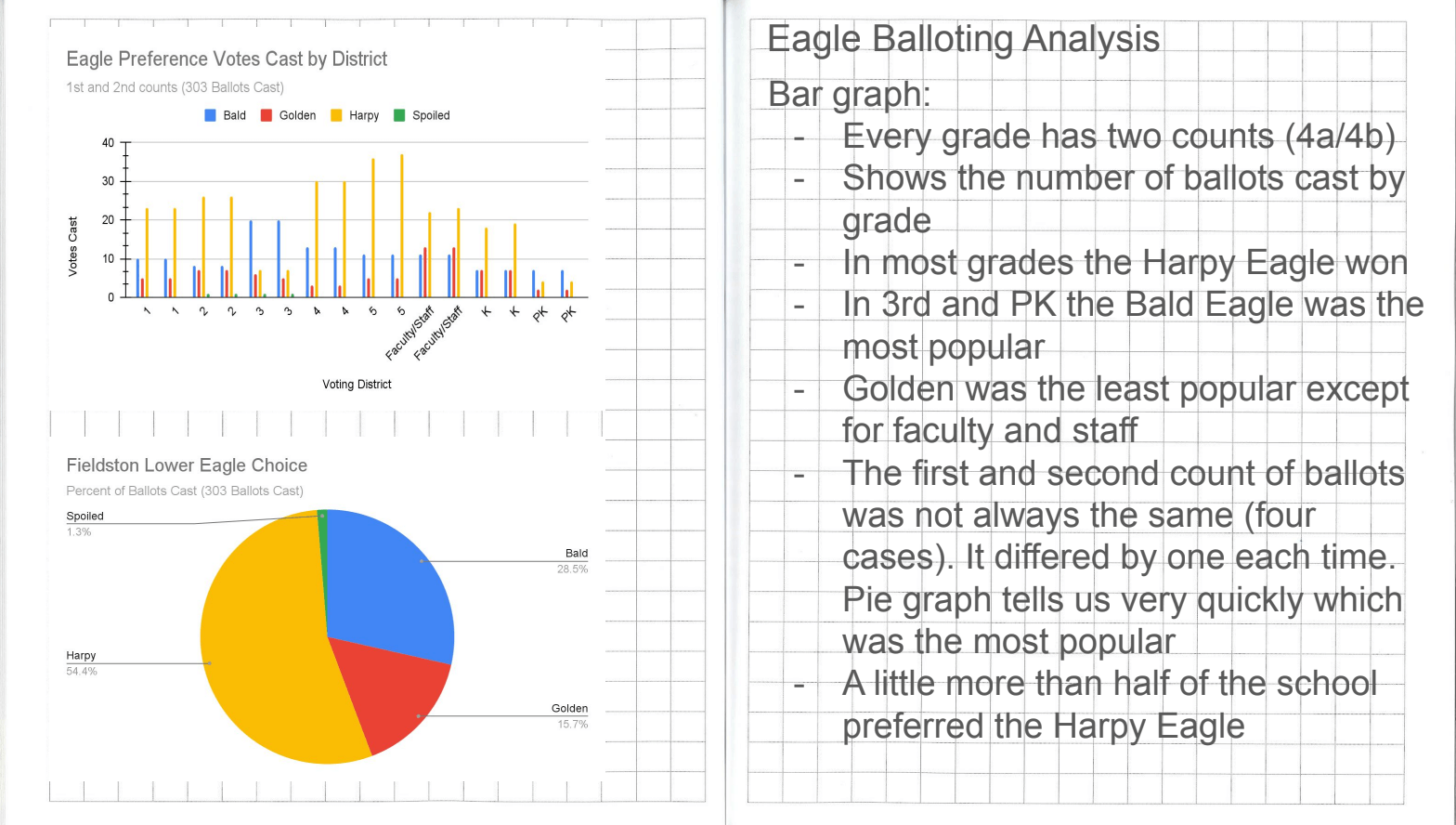
Reflecting on the value of this unit, Chisty ruminated, “It takes a young person time to begin understanding how a democracy functions and how an individual functions within such a social structure.” ECFS’s commitment to providing students with a responsive education is integral as they gain awareness of real-world situations that require the ethical and critical thinking skills they’ve studied from a young age.


